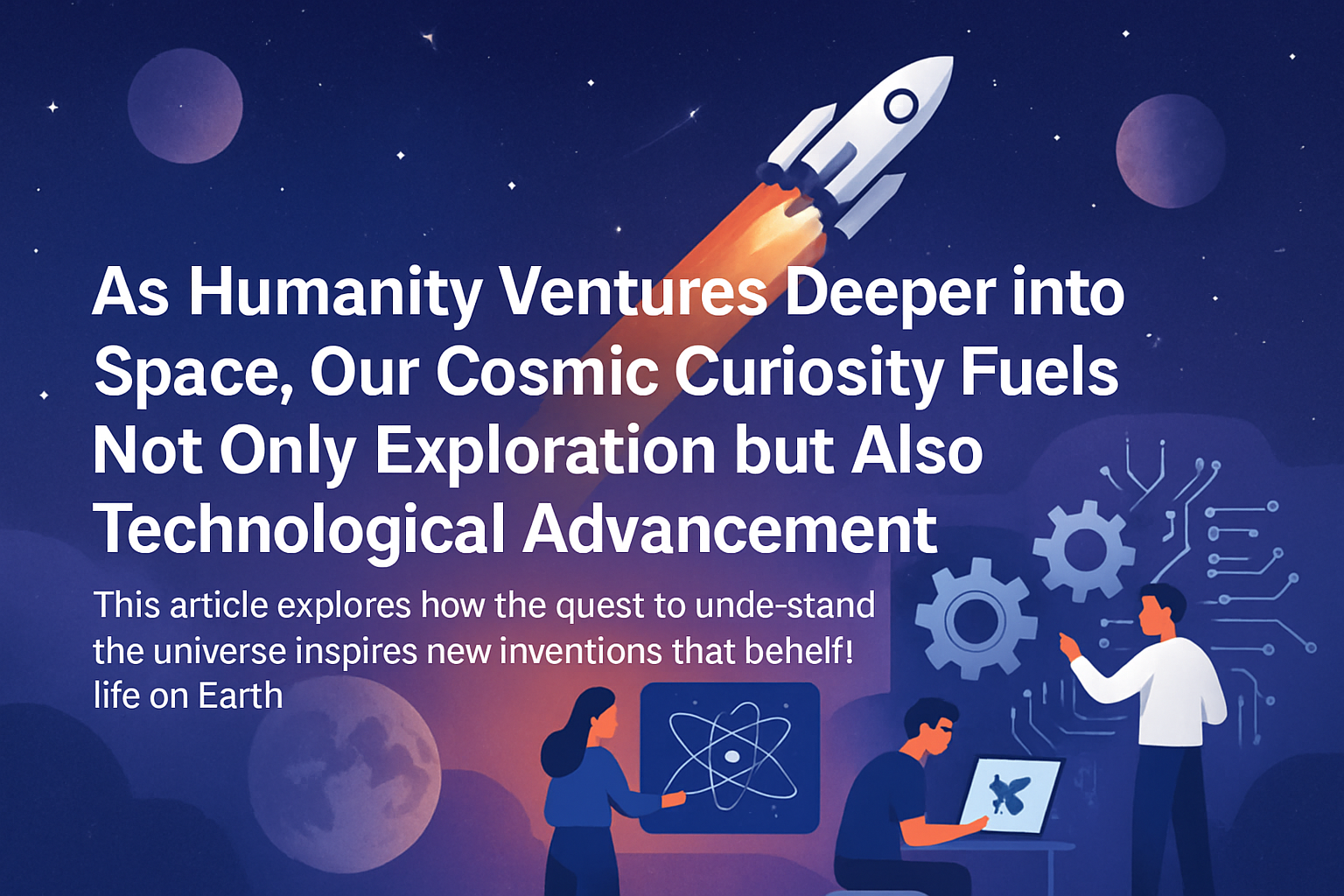Location
Mount Vernon, WA 98274
Location
Mount Vernon, WA 98274

As humanity ventures deeper into space, our cosmic curiosity fuels not only exploration but also technological advancement. This article explores how the quest to understand the universe inspires new inventions that benefit life on Earth.
The vast expanse of the universe has always intrigued humanity. From ancient stargazers to modern astronomers, our cosmic curiosity drives us to explore the unknown. As missions to Mars and the outer planets gain momentum, the implications of space exploration extend beyond mere scientific discovery; they spark innovation that significantly impacts life on Earth.
One of the most compelling aspects of space exploration is how it challenges our understanding of physics and technology. The development of advanced propulsion systems, for instance, has potential applications not only in space travel but also in terrestrial transportation. The propulsion technologies being tested for future missions, like NASA’s Space Launch System (SLS), aim to enable crewed missions to Mars and beyond. These innovations could lead to more efficient engines and sustainable energy solutions for Earth.
Moreover, the robotic missions currently exploring the Martian surface offer a wealth of data about our neighboring planet. The Perseverance rover, equipped with sophisticated instruments, analyzes soil samples and searches for signs of ancient microbial life. These findings not only advance our knowledge of Mars but also inform our understanding of climate change and geology on Earth.
In addition to scientific advancements, the pursuit of cosmic curiosity has fostered international collaboration. Countries around the globe, including the European Space Agency and China’s space program, are working together on projects like the Artemis program, which aims to return humans to the Moon by the mid-2020s. Such partnerships highlight that the quest for knowledge transcends national boundaries, uniting humanity in a common goal to explore the cosmos.
Space exploration is also a catalyst for education and inspiration. Programs encouraging students to pursue careers in STEM (Science, Technology, Engineering, and Mathematics) fields have gained traction as a result of high-profile space missions. Initiatives like NASA’s Artemis Generation aim to engage and inspire young people through hands-on experiences and educational resources, harnessing their curiosity about the universe.
As we continue to push the boundaries of what is possible in space exploration, the technologies developed not only enhance our understanding of the universe but also yield practical applications that improve our lives. From advancements in telecommunications to innovations in materials science, the ripple effects of our cosmic curiosity are felt here on Earth.
In conclusion, the drive to explore the cosmos is more than just a quest for knowledge; it is a journey that propels human ingenuity and fosters global collaboration. As we look to the stars, we also reflect on our own planet, reaffirming that the pursuit of cosmic curiosity is essential for the advancement of our civilization.